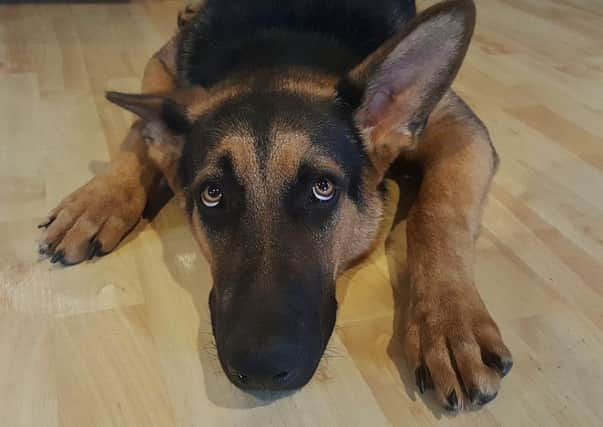GUEST COLUMN: Make pets feel safe on firework night, by Rachel Butler, RSPCA


As lovely as fireworks look, it is a time of year which many pet-owners dread as the loud, unexpected bangs can cause many animals to become terrified.
Last year the RSPCA received 436 calls relating to fireworks during October and November - more than in 2014 (364), 2013 (310) and 2012 (326).
Advertisement
Hide AdAdvertisement
Hide AdWe backed a fireworks campaign started by a horse-owner Julie Doorne earlier this year which led to a debate in Parliament by MPs. The campaign urged consideration to be given to restrict the private use of fireworks to all but certain days of the year - November 5, New Year’s Eve, Chinese New Year and Diwali.
For now, displays can take place on any day so the RSPCA would urge organisers to be vigilant and give plenty of notice to people in the area so they can be prepared. Organisers can also do their bit by ensuring there are no farm animals close by or wildlife in the area or even nesting or hiding in the bonfire itself.
There are some simple things owners can do to help their pets. Make sure dogs and cats are kept indoors when fireworks are likely to go off, try to mask the noise of the fireworks by turning on the TV or music, and provide pets with a safe place to hide at all times.
Small animals that live outside should have lots of extra bedding so they can burrow and some of their enclosure could be covered by a blanket for extra insulation and sound-proofing.
Advertisement
Hide AdIt is not just dogs and cats that are affected by fireworks - farm animals can be easily frightened by loud noises and sudden flashes of bright light, which can startle them and cause them to injure themselves on farm equipment, and wildlife can be burnt alive after making their home in bonfires,so it’s important to be careful at this time of year.
Advertisement
Hide AdFireworks phobia is a treatable condition and vet advice should be sought in the first instance. Using a ‘Sounds Scary!’ CD can help dogs learn to be less afraid of loud noises in the long-term.
For any pet, whether it be a dog, cat, rabbit or rodent, make sure you provide suitable hiding places with extra bedding where they can feel safe. This is also true for animals that live outside.
Make sure you close all windows and curtains and play music or put on the television to muffle the fireworks. A pheromone diffuser may help dogs and cats feel calmer, and you may find it beneficial to take your dog for a walk earlier in the day.
Advertisement
Hide AdFinally, never ever take a dog to a fireworks display – even if they don’t make noise or show other signs of being scared – as it’s still highly likely to be a stressful situation for them.
Hopefully the stressful nights of early November will become less stressful for you and your pet and you can feel more prepared to do it all again in seven weeks’ time when we see in 2017! With each time, your pet may start to realise there is no reason to be scared of fireworks. And you might start to enjoy fireworks more, too!